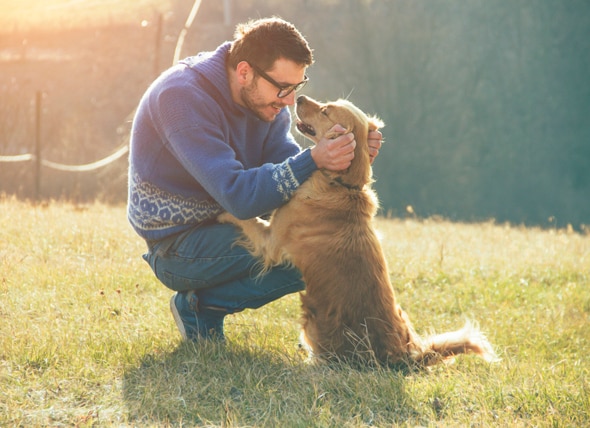Like many people in Uganda, Charles Watmon has difficulty living with the things he saw anddid as a soldier. An unexpected friend now helps him shoulder the burden. That friend’sname is Ogen Rwot and she is a cute, friendly, caramel-colored dog.
For a decade, Watmon fought on both sides of Uganda’s civil wars, first for the Lord’sResistance Army, then for the Ugandan government. The experience was traumatic. To makematters worse, he learned that he was HIV positive toward the end of his time in the military,and soon lost his wife and his two children to AIDS. After the war ended, he sufferedflashbacks and panic attacks. He even thought about suicide.
Then he met Ogen Rwot, whose name means “Trust in the Lord.” She is a therapy dog, butWatmon sees her as more of a sister.
She came to him from the Comfort Dog Project in northern Uganda where 7 out of every 10people have been traumatically affected by war. The project is the brainchild of FrancisOkello Oloya. Oloya was blinded for life when, at 12 years of age, he hit an unexploded bombwith his garden hoe, sending pieces of wood and metal into his eyes.
He attended a boarding school where he had difficulty with many things. He especially hatedhaving to ask his peers for help doing simple things like visiting the bathroom. That’s why hewas so grateful when, in a miraculous turn of events, the school’s guard dogs began leadinghim to the bathroom instead. He formed a strong bond with them and now wants to helpothers in the war-torn area to do the same.
Service dogs are common in many countries, but in Uganda, the animals are primarily used asguards. Most people fear dogs and would never invite a dog to sleep in their bed like Watmondoes. They are seldom kept as pets, and almost never used for therapy. Watmon is one of asmall but growing number of Ugandans who are being healed by these therapy dogs.
According to research, dogs are good for our health. One study found that people over 65who have a dog as a pet visit the doctor 30 percent less often than those who do not. Dogsalso have been shown to reduce depression, PTSD symptoms, and anxiety. Another studyfound that dogs and humans merely looking into each other’s eyes caused the level ofoxytocin, the “feel-good hormone”, to rise. And it didn’t just rise in the human researchsubjects. The dogs also showed higher levels of oxytocin, which suggests the healingrelationship between dogs and humans is a two-way street.




